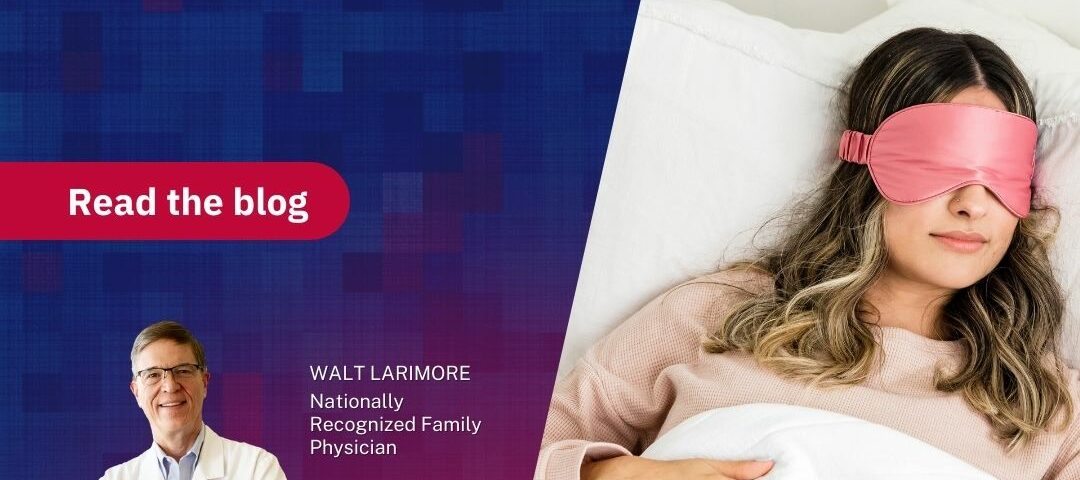Thursday Ask Dr. Walt – Can poor sleep harm my health?

Weight loss tied to huge drop in cancer risk and mortality
June 22, 2022
Study links mobile device overuse to unhealthy outcomes
June 24, 2022Audio only – Listen here
“Dear Dr. Walt, I don’t get as much sleep as I used to. I’ve read that poor sleep can actually harm my health. How can that be?” This is from “Sleeping Less in Alabama”
Dear Sleepy,
The research is clear: not getting enough sleep may be harmful to your health:
- Sleep boosts immunity. If you seem to catch every cold and flu that’s going around, your bedtime could be to blame. A 2019 study from Germany showed restful sleep strengthens the potency of certain immune cells and improves their chances of attaching to—and eventually destroying—cells infected with viruses.
- Sleep can slim you. Sleeping less may mean you put on weight! Studies have shown that people who sleep less than seven hours a day tend to gain more weight and have a higher risk of becoming obese than those who get seven hours of slumber. Other research shows if you don’t get enough sleep, it’s harder to lose excess weight and keep it off. It’s believed to be because sleep-deprived people have reduced levels of leptin (which lessens your appetite) and increased levels of ghrelin (which gives you a greater appetite).
- Sleep boosts mental well-being. Given that a single sleepless night can make you irritable and moody the following day, it’s not surprising that chronic sleep debt may lead to long-term mood disorders such as depression and anxiety. People with anxiety disorders often have trouble sleeping and poor sleep can induce anxiety. After sleep deprivation, anxiety levels in healthy people are 30 percent higher than when they had slept.
- Sleep reduces the risk of diabetes. Studies have suggested that people who usually sleep less than five hours a night have an increased risk of developing diabetes. It seems that missing out on deep sleep may lead to type 2 diabetes by changing the way the body processes glucose, which the body uses for energy.
- Sleep increases sex drive. Married men and women who don’t get enough quality sleep have lower libidos and less of an interest in sex, research suggests. Men who suffer from sleep apnea—a disorder in which breathing difficulties lead to interrupted sleep—also tend to have lower testosterone levels, which can lower libido.
- Finally, sleep wards off heart disease. Long-standing sleep deprivation seems to be associated with increased heart rate, an increase in blood pressure, and higher levels of certain chemicals linked with inflammation, which may put extra strain on your heart—and your arteries. Other research shows sleeping fewer than six hours a night or waking frequently raises your risk of developing damaging plaque in arteries throughout your body, not just your heart. So, sleeping too little increases your risk of heart attack or stroke. Those who sleep seven to eight hours a night have the lowest heart risk on average.
The bottom line is that a good night’s sleep is worth its weight in gold.
© Copyright WLL, INC. 2022. This blog provides healthcare tips and advice that you can trust about a wide variety of general health information only and is not intended to be a substitute for professional medical advice, diagnosis, or treatment from your regular physician. If you are concerned about your health, take what you learn from this blog and meet with your personal doctor to discuss your concerns.



